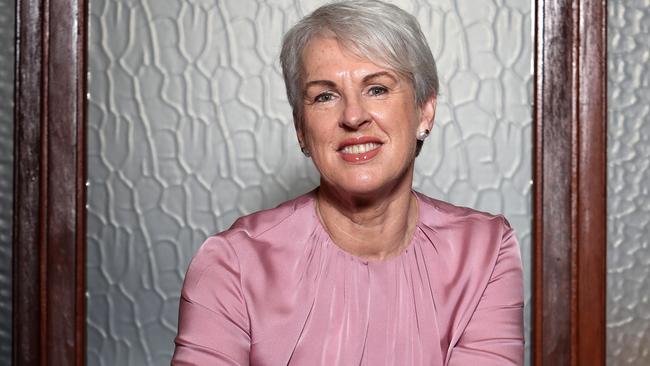Good news, the boss won’t question those sick days
Australians are notorious for going to work even when unwell, but COVID-19 may have changed that culture permanently

The COVID-19 pandemic has reduced management resistance to employees working from home and convinced employees they should not go to work when sick, according to Safe Work Australia chairwoman Diane Smith-Gander.
In an interview with The Deal, Smith-Gander says the shock to the labour market caused by the pandemic has seen a “decade’s worth of growth” in employees working from home in less than a year.
“I think the biggest change that we are seeing is people’s understanding that it’s not necessary to go to work if you are unwell,” she says.
“You don’t have to soldier on. Do you remember that Codral ad? Soldier on with Codral. Well, I think they are going to have to change that pretty radically because soldiering on has been shown with this particular virus, and really with colds and flu, to not be the right thing to do in a workplace.
“So now that we have a better understanding of the ability to work flexibly that does mean that although you may be slightly unwell and may be infectious, you can still work at home, conserve your annual leave when you want to take your annual leave, conserve sick leave for when you are really sick, and keep the wheels of the economy turning.”
Smith-Gander says management resistance to employees working from home has waned and there will be a post-COVID increase in the number of employees working remotely at least some days each week. “I think that is definitely going to happen because people have understood that it is possible to work at home and you do have the benefit of less commute time and so forth,” she says.
“I think what we’ll see is, depending on the type of business you’re in, people will sit down and determine do we actually need to have everyone in the office at a particular time.
“We will see more working from home and we will develop better ways of doing it, and all the things like electronic document signing, capturing data in an appropriate way and pre-populating forms for people, all of these things are going to just become very much the norm. So we will have to do work around data privacy and protection of digital assets, but I think it’s really worth it. It will be great for regional Australia as well.”
Employers and unions have agreed to changes to awards to accommodate the increase in employees working from home. The spread of ordinary hours has increased so work can be done early in the morning and at night without employers having to pay overtime and penalty rates.
“I think increasing the spread of hours has been important not just for white-collar workers but in manufacturing settings,” Smith-Gander says.
“If you have got a medium-sized printing factory you might have had to move from working just a day shift to working a day and an evening shift so that you can separate your workforce into two crews.”
The labour market calamity caused by the pandemic is “delivering a better conversation between all sectors of the economy — the legislators, the regulators, other parts of government, business, the union movement, employer representatives”.
“There are a lot of conversations occurring that in the past might have been adversarial but now have a common purpose, and it’s way easier when there is a common purpose to be able to move forward a bit swifter,” she says.
But having employees working from home does not reduce the work, health and safety obligations of employers.
“It is the same duties as they have anywhere, so you have got to give people work that they are fit to do, that they are trained for, and you have got to think about the ergonomics of the workplace and hazards,” Smith-Gander says. “And you have got to think about fatigue, hours worked.
“All of these things are exactly the same in the home office and the work is from when the work hours start to when the work hours finish.”
Smith-Gander says there is anecdotal evidence of an increase in mental-health related workers compensation claims because of COVID-19.
“Anecdotally there is evidence that there are more mental health claims coming through,” she says.
“When you think about the low incidence that we’ve had of COVID, we are more likely to see COVID claims being around secondary issues that came out of lockdown rather than people catching the disease at work.
“So I’m expecting that the data that comes in for workers compensation around COVID will be skewed around mental health because it is a secondary impact. That doesn’t mean business isn’t managing it well. It’s just an artefact of the small number of incidents of COVID that we have, and the small percentage of those who will contract (COVID) at work.”
Smith-Gander says each jurisdiction is looking to see whether it will deem COVID as a workplace disease. “If you’re a health worker and you contract COVID, it’s deemed to have been contracted in the workplace, no questions asked, it’s a workers compensation event and it will move forward from there,” Smith-Gander says.
“But this will all be tested … lawyers can come up with a case for just about anything. So I think what we’ll be seeing is some grey area of workers compensation claims that may be COVID-related due to working from home during lockdown, and the law will just develop.
“I think the regulators and employers are taking a very broad approach to this. They’re tending to being biased towards supporting and helping the employee and understanding how these dynamics work rather than taking an adversarial stance and saying, well, this can’t be, we want to deny your claim.”

